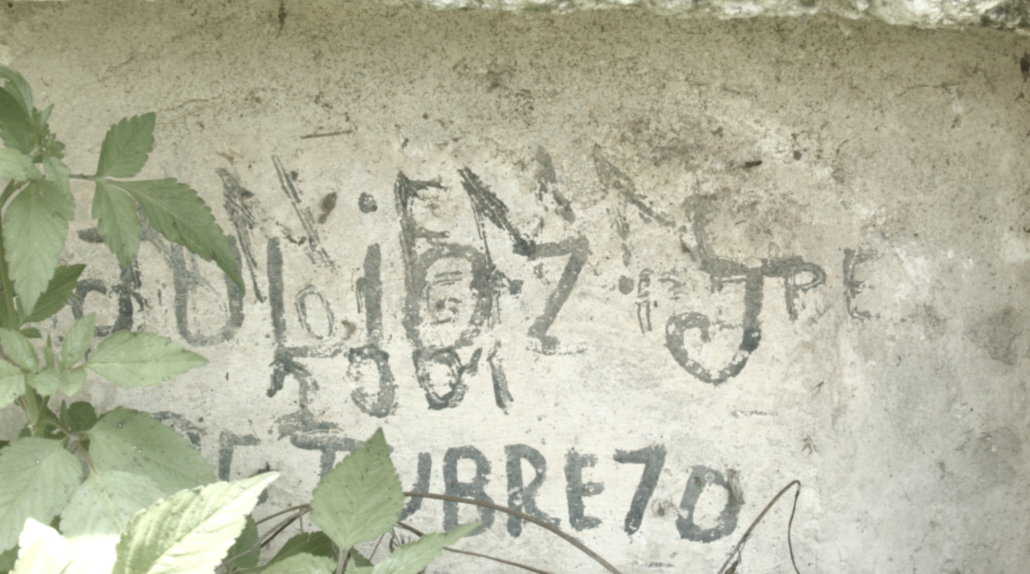Unit for the Search of Disappeared Persons (UBPD) Snapshot 1
The ABC of the Unit for the Search of Disappeared Persons (UBPD)
Photograph taken By Maria Ordoñez
Jesús María Estrada cemetery, Marsella (Risaralda), 2019.
What is it?
The Unit for the Search of Disappeared Persons (UBPD) is responsible for looking for those who went missing during the armed conflict. It is one of the three institutions of the Comprehensive System for Truth, Justice, Reparations, and Non-Repetition (CSTJRN) set out in the peace agreement signed in 2016. The unit was developed in response to requests by relatives and civil society organizations that were part of the peace dialogues. In particular, they asked for the establishment of an institution to search for the disappeared without discrimination on the basis of their origin, age, gender, religion, militancy, or any other factor.
Nature of the Unit and its Approach
The search for and identification of disappeared persons contributes to victims’ right to truth and reparation, and the UBPD is a humanitarian state entity. It is also extrajudicial; none of its data can, under any circumstances, be used as evidence for judicial purposes. These two elements differentiate the UBPD from other entities involved in the search for disappeared persons in Colombia, such as the Office of the Attorney General of the Nation or the Investigation and Accusation Unit of the JEP.
The UBPD uses a differential and gender-sensitive approach when working with relatives of disappeared persons. It has, for example, created spaces for dialogue that actively involve family members in the search process, taking into account their knowledge and particular needs.
Cases
The unit’s remit covers those disappearances that occurred during and as a result of the armed conflict, before the peace agreement took effect on 1 December 2016. These took the form of:
- Forced disappearance
- Kidnapping
- Illicit recruitment
- Disappearances during hostilities: state and non-state combatants
Objectives
The UBPD has a 20-year term during which it must fulfil the following objectives:
- To search for disappeared persons and, in the case they are alive, locate them.
- To coordinate and cooperate with the recovery, identification, and dignified return of remains to relatives.
- To design and implement the National Plan and Regional Searching Plans.
- To communicate the development of search plans to family members and society.
- To follow the requirements and guidelines of the Truth Commission, and provide them with reports about what happened to the disappeared.
Challenges
Since it began its work, at the end of 2018, the UBPD has tackled several challenges:
- Gaining access to the resources needed to fulfill its functions. Of the three institutions of the transitional justice system, the UBPD has been the last to get underway.
- The organisation and consolidation of a register of disappeared people. Following the work carried out by the National Center of Historical Memory (and the Unique Registry of Victims) in reviewing the data of the National Registry of Disappeared Persons, and the Attorney General’s Office, it is estimated that more than 100,000 people were forcibly disappeared.
- Constructing regional and local search plans as well as investigation strategies. This has been done through the creation of the National Registry of Graves, Illegal Cemeteries and Burials, which identifies locations where human remains can be found. The Unit has achieved this due to the support and information provided by relatives, communities inhabiting these territories, victims’ organisations, and other official sources.
- Improving the tools required for identifying bodies that are discovered, as well as those that remain in cemeteries or university repositories.
- Undertaking the search for disappeared persons amid an ongoing armed conflict, guaranteeing the continued participation of victims, and ensuring the confidentiality of information received.
Achievements
The UBPD’s work has not been easy, but the unit has made progress both internally as an institution, and in its work with victims. This includes:
- Carrying out pedagogy about their work with informative days;
- Collaborating with the JEP to define the 16 areas of the country that require precautionary measures to ensure the protection of the remains of possible victims of forced disappearance;
- Creating multiple channels so that victims of forced disappearance can access information efficiently and quickly. These include telephone lines and the website, in addition to being able to attend UBPD facilities;
- Providing information on the location of corpses, and coordinating and providing accompaniment at seven dignified ceremonies for returning remains, both individual and collective;
- Taking samples of genetic information from fifty families of people reported missing in the Magdalena Caldense;
- Making progress towards completing a robust review of the phenomenon of disappearance in the context of and as a result of the armed conflict.
Embrace Dialogue celebrates the effort made by the UBPD to support victims’ right to truth and reparation in the case of forced disappearance in Colombia. This snapshot is the first in a series of publications that will report in detail on the progress, challenges and opportunities that this institution offers to turn the page on the war in Colombia.



 https://www.elcolombiano.com/colombia/las-victimas-valoran-que-farc-cuente-su-verdad-YK8936166
https://www.elcolombiano.com/colombia/las-victimas-valoran-que-farc-cuente-su-verdad-YK8936166